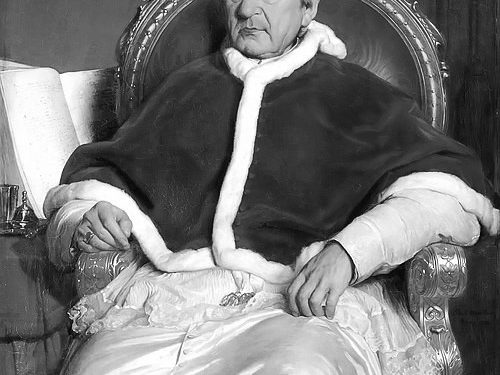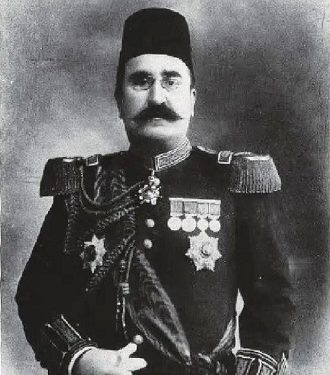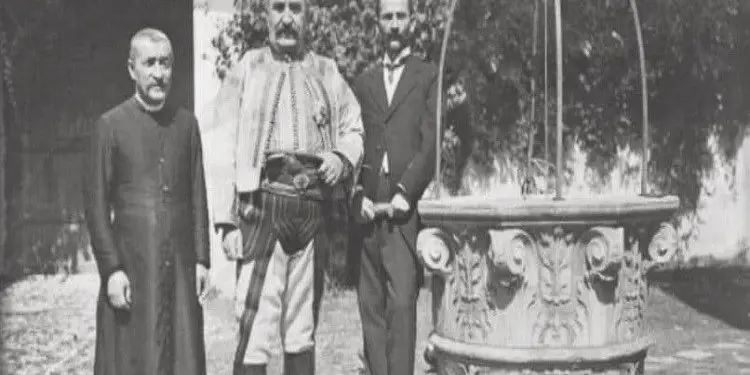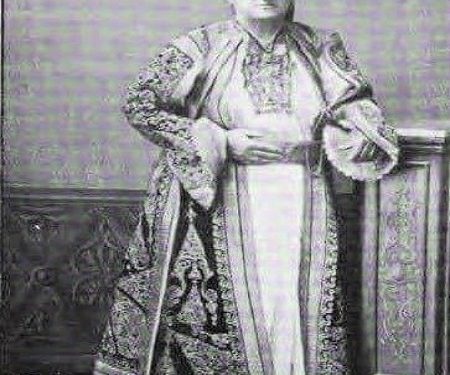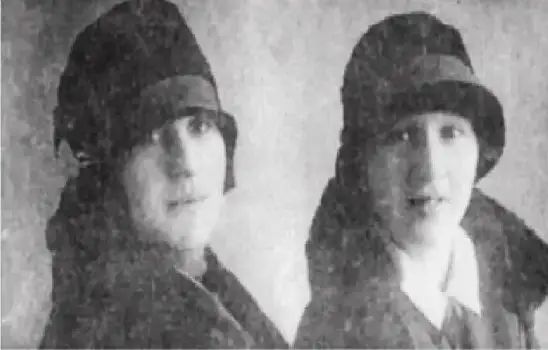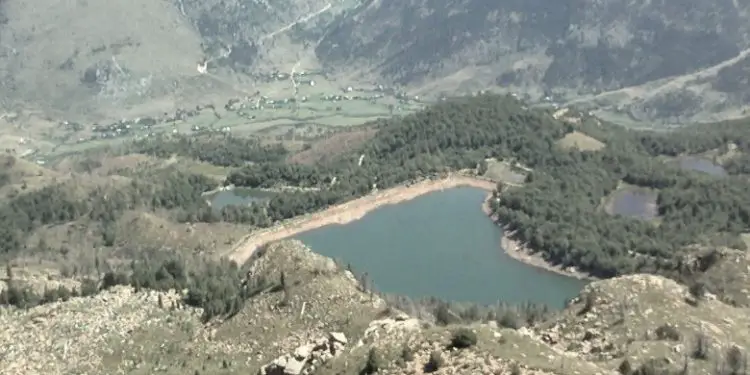By Dr. Nikol Loka
The ninth part
“PRENGA BIBE DODA, THE SHADOWS OF A CITIZENSHIP”
Memorie.al / The newest book “Prengë Bibë Doda, a phenomenon in Albanian political life”, by the researcher Nikollë Loka, not only expands the field of historical studies on Mirdita, the Door of Gjonmarkaj and the figure of the Mirdita Prince, Prengë Bibë Doda, but it is also a contribution to national historiography. The very rich archival material, the literature used or consulted, oral traditions, etc., make this book a real study treasure, giving the science of history a scientific monograph that enriches our knowledge of Mirdita, its captains, tradition, history etc. To study such an important and complex figure, as the figure of Prengë Biba Doda, is a high scientific responsibility that not everyone undertakes. Nikollë Loka, has done a great job of research and treatment by the professional researcher, giving us the portrait of the Prince and the general Mirditor, with the true contours. Dr. Loka has adhered to the end of the space and time, in which the multidimensional events and their protagonists have developed.
THE MONOGRAPH “ABOUT BIBË DODA, A PHENOMENON IN ALBANIAN POLITICAL LIFE”, A VALUABLE SCIENTIFIC STUDY THAT ENRICHS THE FUND OF OUR HISTORICAL STUDIES
(By Mr. Sc. Murat Ajvazi, March 2017, Switzerland)
HOW DID THEY EVALUATE BABY DODA?
State assessment
Bibë Doda, 24 years old, becomes the head of Mirdita. In 1849, he was given the title “Pasha”. The Turkish Empire then ranks him “Brigade General”. The European aristocracy recognized him with the title “Kapidan”. Sultan Abdyl Mejhiti, with Decree No. 124 awarded him the order “Mejidie” of the III class, accompanied by a salary and many rewards.
Bibi Doda, became the first Christian Pasha of the Empire. In Mirdita, his acceptance of the title “Pashë”, as well as his acceptance of the establishment of a gendarmerie in Orosh, which would be paid by Istanbul, made a bad impression. (148) While Emperor Napoleon III of France, as a sign of gratitude for this war, presented Biba Doda with the “Silver Sword” and promised to take Mirdita under protection in the international arena.
Apostolic assessment
The fame and merits of this Christian leader were also appreciated by the Holy See. On April 16, 1844, Pope Gregory XVI gave Biba Doda the title “Cavalier of the Civil Order of Saint Gregory”, after which Kapidan Biba was accepted into the society of this order. (149)
While in 1855, he gave the title; “Princeps Mirditarum”. This is how Pope Gregory XVI addresses him: “Dear son, health and Apostolic Blessing.” The most brilliant titles of high honor, is the greatest testimony of our benevolence, which is most willingly given to those men, who, being distinguished for the nobility of origin in the honor of religion, are glorified by rightly deserving gratitude, in the religious and civil field. In fact, we know very well that you, favored by the ancestors and by important persons for clarity, honesty, charity and justice, are diligently engaged in promoting the good and the development of the Catholic religion, with sincere care towards Us and, from this Apostolic See, you have always behaved as, of course, it belongs to a Catholic man. Therefore, considering these outstanding values, we thought of giving you a sign of care towards you.
Wishing, so to decorate us with a special evaluation of honor, also precisely for this, choosing you with conviction that you can be resolved from any kind of decision of excommunication, or prohibition other ecclesiastical decisions, censure, punishment issued in any kind way and, for any motive, in case you will be affected, through this document, in the strength of our Apostolic authority, to appoint and declare ‘Knight Commendator of the Civil Order of Saint Gregory the Great’ and to co-opt the company of other knights , of the same Order. Therefore, as a distinctive sign of this Order, we give you and allow you to wear freely and rightly, the large golden octagonal cross, red in color and bearing in the middle the image of Saint Gregorio Magno, to which a red silk ribbon is attached, gilded on the two side parts, to hang around the neck. And in order not to endanger the carrying of this decoration, we order that a reproduction of the same Cross be submitted.
Given in Rome, near St. Peter’s, with the distinguishing sign of the Fisherman’s ring, on April 16, 1844. The fourteenth year of Our Pontificate.
PRINCESS MARJELA
The fall of Hasan Ajaz
Bibë Doda’s Margjela was born in the well-known Ajaz family of Lura. The Ajazs had become Muslims late, in the period when, for many reasons, the majority of the population did not stay long in the Christian faith. Bibi Kola Ajazi, who was married to a Mohammedan woman, with whom he had three sons: Hasan, Ali and Meta. It didn’t take long and Biba died, then the management of the household affairs was taken over by the eldest son, Hasani, who married the sister of Dede Vladi, in the village of Pregja – Lure.
Hide Ajazi was born in Arrë Mollë in 1848 and was the only daughter of Hasan Ajazi; tall, healthy, with natural beauty and intelligence. According to tradition, the leaders of Miridita also married Muslim girls, from well-known families, a tradition that comes from the time when Lura was Catholic. Biba Doda was no exception to this tradition, who after the death of his first wife, born in Shkodër, married Hida and
Hasan Ajazi, who after the marriage was baptized with the name Margjelë. Bibë Dodë Pasha tried his best to connect with Hasan Ajaz, to accept his friendship, but to no avail.
The main obstacle was religion. Then Biba entered into an agreement with someone close to Hasan, who connected him directly to Hida. Based on this plan, she married the Prince, without the family’s consent. This incident irritated the institution and Bibë Doda, who valued the Ajazs, preferred to choose according to custom, taking the uncle of the chick, Dedë Vladi and went to his friend, fell on his knees and asked for the hand of his daughter Hasan, who then refused one look at the boys, who was next to him, said: “His head is lowered, it is not cut”. On that occasion, Grandfather Vladi had said to her: “Your daughter and my granddaughter, who was born for a Pasha and a Pasha, now a friend, took you.” (150)
After the poisoning of Biba Doda by the Turks, in 1868, Hidja, baptized with the name Margjelë and popularly known as the Princess of Mirdita, was left alone with her son Prenga and daughter Dava. Next to her, her brother Stafa and nephew Limani went, who were found at every moment. Thanks to the help of her family and the support of most of the chiefs of Mirdita, who did not agree to cancel the Kanuni, Prengë Bibë Doda, then a child, was recognized as the traditional Chief of Mirdita. On this occasion, the Ottoman authorities acted mischievously, sending the little boy to Istanbul, supposedly to protect and educate him, depriving Mirdita of the rightful heir to the captain’s throne. In those conditions, Stafa left Liman in Shkodër near Margjela and Dava and went to Istanbul himself to take care of his grandson, staying there for several years in a row.
Bibë Doda and her uncle, Staf Ajazin, settled in the ‘Saralitas’ neighborhood of Istanbul, where they were kept under surveillance by the Ottoman authorities. The staff managed the economy and spoke on behalf of the Prince, being his advisor and guardian. While Prenga, who had previously received private studies in Shkodër from Arbëresh Leonardo de Martino, at that time his father’s secretary, continued his education at Robert College, an American school that was founded in 1863, where the children of aristocratic families studied, mostly foreigners and selective education was given. In that school, English and French were taught, but the mother tongue was also taught, when the number of students reached twenty-five. There are data that the Albanians had also reached this number, which is why there was also a teacher for the Albanian language. In addition to the languages we mentioned above, the student also learned another language, as desired: Turkish, German, Bulgarian or Armenian. (151)
Margjela’s influence on Mirdita’s self-government
The widow of Biba Doda, with her attitude from Burne, attracted the attention of political and diplomatic circles, as well as public opinion. The newspaper “Populli” writes that; “she was a wise and cheerful woman, she died with honor at the door of Biba Doda”. (152)
The empty place left by Bib Doda, Margjela, his widow, wanted to pass it on to her son, Prenga, who was not yet of age. As a guardian for her son, she wanted Captain John, and little by little, the widow of Bib Doda, achieved her goal. The Mirditas, in a meeting in Saint Paul, said that Prengë Bibë Doda was their leader and, until he grew up, they put captain Gjon as their guardian. Claiming that it could not accept the results of the elections in Saint Paul, the Turkish government appointed Kapidan Gjoni, kajmekam, instead of Prenk Bibë Doda. Since the Mirditas did not recognize this appointment, kajmekam Gjoni, was forced to leave his post as early as April. (153)
According to the Canon, the woman had no right to decide on the affairs of the Province, however, as the mother of Kapidani the heir and Kapidani’s widow, Margjela, was asked and her opinion influenced the decisions of the chiefs.
Margjela was a very smart and determined woman, endowed by nature with a fine political nose and female cunning…! Her hand was everywhere when it came to her son’s captaincy aspirations. (154) In fact, Margjela was seen as an important political actor in the developments that were expected to happen in Albania, therefore, there is information about her in the European offices, coming from the consulates in Shkodër.
The Austro-Hungarian consul informed Vienna that; “Margjela’s position has become more secretive. She covers with terrible care, any influence she tries to exert on the Mirditas, through her close people. Her steps cannot be controlled so easily and do not provide any definite support point for her participation in political events. (155)
Because of the friendship she had with the French, and Emperor Napoleon III, as her son’s godfather, the French provided her with the necessary support and protection. After the murder of Dede Tuci, the French consulate intervened to protect the widow of Biba Doda. Consul Lé Rée only took concrete security measures for her home. On this occasion, Margjela and Dava took refuge in the French Consulate in Shkodër. Marshal Mustafa Asim Pasha tried to use this opportunity, who for a long time intended to isolate all the members of Prengë Bibë Doda’s family and remove them once and for all from Albania. (156)
After some time, the situation normalizes and the princely family goes to its Palace. After leaving the French consulate, Margjela, made her first visit to the Russian deputy consul, Kryllov, in the company of the French consul, Lé Rée, a visit that let us understand that the Russians were also interested in Biba’s family.
In that situation, the High Gate did not stand idly by and tried to accuse Margjela, reminding her that, through Captain Mark, he had secured the cooperation of the Mirditors in the conspiracy against Gani Bey, after he, after returning from Greece, had taken refuge in Captain Mark. (157)
In the face of the intrigues of the Turks, Margjela remained strong and in one case, she had declared: “Any interference from outside in the internal affairs of the Mirditors, they will put up strong resistance…! (158)
On the other hand, the English carefully followed her collaboration with Prengë Curri and, between him, with the Corfu Committee. Concerned, the English diplomats in Shkodër, Istanbul and London exchange reports on Margjela’s behavior and one of them, diplomat Leybourn, after consulting with the center, sent him a letter, asking him to; “don’t allow Prengë Curri to agitate in Mirdita”. (159)
As opponents of the Russians, the Austro-Hungarians carefully followed Margiela’s movements and, on the one hand, informed the authorities in Vienna and on the other hand, kept in touch with him, expressing the friendship of their country. In the report that the Austro-Hungarian consul in Shkodër sends to Vienna, it is about Margjela’s machinations of Biba Doda and the many roles she plays in the agreements with France, Russia, Montenegro, as well as the Hellenic agitation. (160)
On the other hand, Vienna gave her subsidies, (161) Austro-Hungarian officials and diplomats brought her gifts, invited her to visit or visited her home. Vic Vardell, adviser to the Imperial Government of Austria-Hungary, had sent a letter to the Princess, thanking her for the sculpture he had sent her. Even Margjela was interested in gaining as much support as possible from foreign countries, for the issue of her son and Mirdita, therefore she was interested in relations with all foreign consulates. In the last period of Prenga’s exile, a rapprochement of the Austro-Hungarian Consul with the family of the Chairman of the Mirditas was noticed. The “Princess Mother” was visited by the Austro-Hungarian Consul, in her apartment in Orosh, and her son in Istanbul, was ordered to visit the Austro-Hungarian Ambassador. (162) on this occasion, the Austro-Hungarian government had given Biba Doda’s family a monthly allowance of two thousand piastres. (163)
Margjela, was decorated in 1904. (164) her role had impressed the princess, Helena Gjika, who wrote in a letter to Jeronim De Rada: “Mr. Lejcan, has published in the last newsletter of the Societe de Geographie Paris (April-May) an article on the Mirditas, who, according to him, are active farmers and skilled warriors. The most influential character is always the old princess, Bibi Doda’s mother. (165)
Princess Marjela in the descriptions of foreigners
The foreign visitors who came to Shkodër wanted to know the mother of the Prince of Mirdita, because she gave them the impression of the aristocrats of a time that was disappearing in Europe. Edith Durham had visited her at her home in Shkodër and wrote that she was impressed by her ladylike behavior. (166)
The other Englishman, Aubrey Herbert, had also met her, who writes: “Margjela, an elderly lady with a light appearance, spoke only Albanian. He was wearing the national dress, black and white, and a cloth on his head. Prengë Bibi Doda’s mother must have been an extraordinary woman”. (167)
Even Jan Fabius, in his book about Albania, does not leave Margjela without mentioning her: “According to the stories I had heard about her, she had died a year before my arrival, during the siege, but her name is still mentioned with respect” . (168)
In more detail, Marcin Czermiński speaks in his book “Albania”, describing in detail a meeting with the Princess in Kallmet.
After the death of Biba Doda, the government of Mirdita was taken over by the widow of the deceased Prince, who is the mother of the exiled Prengë Biba Doda, a woman of exceptional ability and quality. The Mirditors consider him as their superior. They pay their dues to her and from time to time, they send their representatives to get her opinions on important issues of their community. During my stay in Albania, I got to know this special personality. At that time, Princess Bibë Doda was in her residence in Kallmet. I went there on horseback, because any other possibility of travel was absolutely impossible, except on foot. The palace is small and has several floors. There is a spacious courtyard and a garden to the side, full of flowers and shade trees. All these are surrounded by a wall.
Several members of the guard of honor were sitting cross-legged on the grass of the garden, under the shade of the large maple tree. They had a stunning garment of bright colors, stitched with many arts. Their waists were tied with belts, behind which pistols and jatagans with silver handles, decorated with precious stones, could be seen.
When I appeared, they all walked up to me and paid me a special tribute, full of taste and thanks. Surprise appeared on their faces, but also manhood, a sign of their strength and glory. Two horsemen jumped to hold my horse and helped me down. The princess, who had been notified of my arrival, was waiting for me at the entrance to the room. She had a graceful figure and was dressed in a national costume, which did not differ from that of other Mirdite women. Although she has stuck six crosses in the ground for her lost family members, who have given her life a lot of suffering, she does not show concern. (169) Memorie.al
- Dom Ndoc Nikaj, Memories of a life…, p. 19
- Gjon Mark Kapidani, Mirdita folklore is characterized by special optimism; see Gjon Mraku, Mirdita, Interview, volume III, p.231
- Ramadan Ajazi, Ajazes between East and West, Tirana 2005, p.19-21
- Xgjimi, No. 1, Korçë, autumn II 1913, year I, p. 32-38
- “Populli” newspaper, April 7, 1919, p.2
- Franc Nopça, Highland tribes of Northern Albania and their customary law,…, p. 85
- Luigj Martini, Abbot of Mirdita Prend Doçi, publications “Mirgeeralb”, Tirana 2012, p,169
- HHStA, PA-Vj.37-92, No.68, Report of the Austro-Hungarian Consul Lippih to the Ministry of Foreign Affairs in Vienna, Shkodër on September 14, 1886
- Luigj Martini, Abbot of Mirdita Prend Doçi,…., p.166
- HHStA, PA-Vj.88-61, No.68, Report of the Austro-Hungarian Consul Lippih to the Ministry of Foreign Affairs in Vienna, Shkodër on January 23, 1887
- Sedulla Brestovci, Albanian-Serbian-Montenegro relations 1830-1878, Pristina 1983, p.233
- FO 195/1476, No. 26 (condential), Shkodër 13 May 1884, Central Committee of Corfu, Historical documents 1883-1885, prepared by Ethem Çeku and Bejtullah Destani, Institute for National Affairs, Tirana 2015, p.44
- AQSH, P.143, D.1117, p.363
- HHStA-PA-A, Year 24-41-4176
- Franc Nopça, Highland Tribes of Northern Albania and their customary law, translated by Dr. I swear. Mihallaq Zallari, “Eneas” publishing house, Tirana, 2013, p.91
- Luigj Martini, Prince Without a Throne of Mirdita, “Mirgeeralb” publications, Tirana 2014, p.14
- AQSH, Bibë Doda Fund, File 16, p.1
- Dora D’Istria, letter to Jeronim De Rada, AQSH, P.24, D.54/1, p.162-163
- Edit Durham, Brenga e Balkan, publications “Argeta LMG”, Tirana 2014
- Aubrey Herbert and the creation of today’s Albania, Diaries and letters 1904-1923, prepared by Bejtullah Destani and Jason Tomes, “Via Egnatia” publications, Tirana 20012, p.43
- Jan Fabius, Six months in Albania, Skanderbeg books, Tirana 2005, p.52
- Marcin Czermiński, Albania, Historical, ethnographic, cultural and religious descriptions, Onufri 2014, p.14




